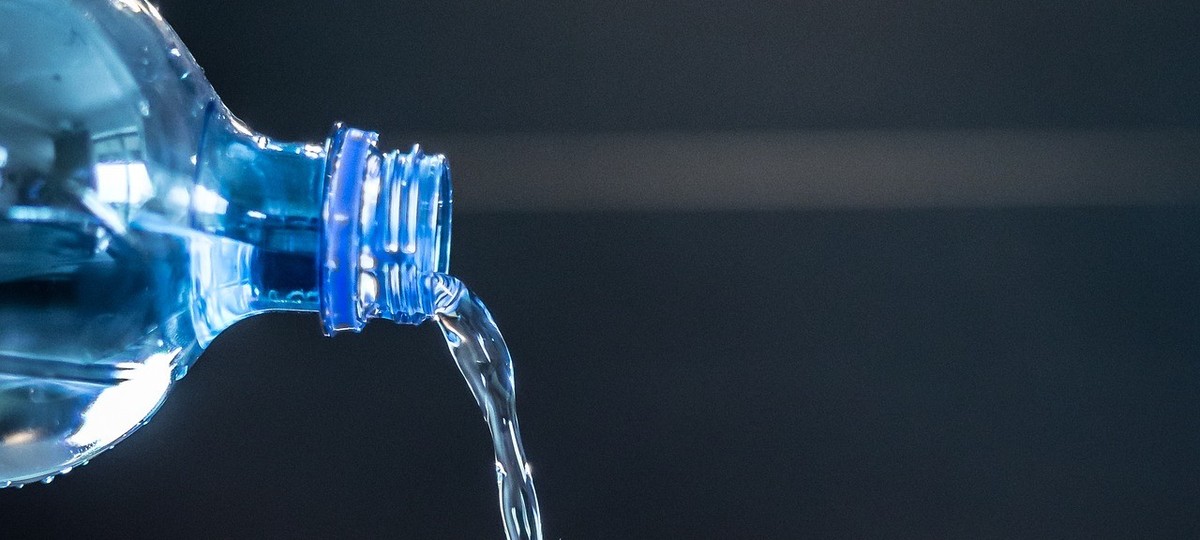
Charming, handsome and homeless, the 25-year-old we'll call Bruce and I were eating dinner at the small Manhattan shelter where I volunteer once a month. We were both enjoying the pasta provided by another volunteer, but only one of us was drinking a $3 bottle of water.
"What?!" I exclaimed when Bruce told me how much he'd paid for the bottle he'd bought earlier that day. "How can you possibly spend that much on water? How can anyone? Tap water is free!"
Bruce just started an $11-an-hour job. Taking out $3 chunks for a liquid that flows freely just doesn't make sense ... to me. But to him? It's vital.
"This water is safe," he said, picking up his bottle.
"So is water from the faucet," said I.
His friend, a young woman who is also in the workforce and also homeless (never assume that "homeless" equals "not working"), stood up for him. "The water from the tap has all sorts of chemicals in it."
"The water in bottles is tap water!" an older shelter guest chimed in, laughing heartily.
Bruce just shrugged. "I got to stay healthy."
So allow me, as a public service, to ask the questions that need answers, beginning with: Is bottled water really better for us than tap water?
"In general, the municipal water supply of any given area has more rigorous environmental standards and controls than the water supplies used by private bottlers," said Richard Murdocco, a columnist who writes on urban planning issues and has worked with environmental and housing groups.
So why are people afraid of it? For starters, because bad news always gets more attention than — yawwwwwwn — anything that's fine. "Headlines (are) about bad tap water, especially in locations like Flint, Michigan," said Jacob Hatch, author of the blog Hydration Anywhere. People remember fuzzy factoids about plastics and pipes, but "in general, water quality is something people know little about," said Hatch. He added that "bottled water is not, on average, any cleaner or safer to drink than tap water." Where bottled and tap are not equal is in the realm of pollution.
Producing a bottle of water actually uses about six times more water than is contained in the bottle itself. And then there's the energy used to make the bottle, make the label, fill the bottle and transport it (sometimes across entire oceans). Then there's the energy we burn driving to and from the store to schlep the bottles home.
What's more, 80 percent of the 50 billion plastic water bottles purchased in the U.S. every year are not recycled.
"So if you need the convenience of a water bottle," I said to Bruce, "or if you love that particular bottle, at least reuse it. Just fill it with more water tomorrow."
Oh, no, no, no, no, came the reply. "Refill it and the plastic breaks down and gets into your blood."
"That's patently untrue," said Michael Cervin, author of "Our World of Water: The Good, The Bad & The Ugly of Earth's Most Critical Resource" and writer of the blog This World of Water.
If you are using the same bottle for years and years, Cervin said, then yes, it can start wearing out, the way Tupperware gets tired after 10 or 15 years. But refilling it for many weeks is no threat to anyone's health, as long as you wash it with soap and water from time to time. Remember, Cervin added, we're not eating the bottle; "we're merely using it as a vessel to consume a beverage."
I didn't have all this info at my fingertips at the shelter, but I did have some paper, so I taught Bruce and his friend how to make an origami cup the next time they are thirsty and don't want to spend $3.
Then we filled the cups with tap water, toasted to better times and drank deep.
Somehow, all three of us survived.
Comment by clicking here.


 Contact The Editor
Contact The Editor
 Articles By This Author
Articles By This Author